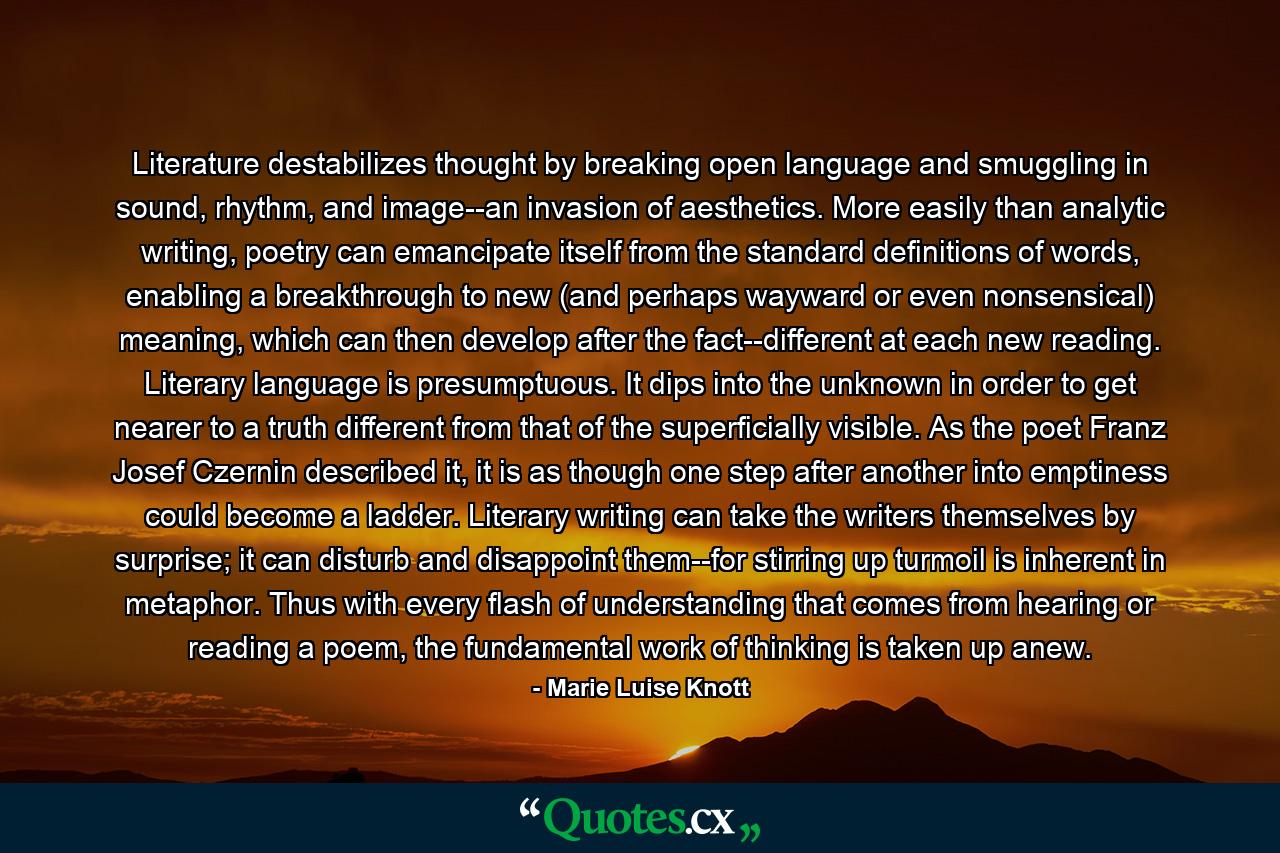Literature destabilizes thought by breaking open language and smuggling in sound, rhythm, and image–an invasion of aesthetics. More easily than analytic writing, poetry can emancipate itself from the standard definitions of words, enabling a breakthrough to new (and perhaps wayward or even nonsensical) meaning, which can then develop after the fact–different at each new reading. Literary language is presumptuous. It dips into the unknown in order to get nearer to a truth different from that of the superficially visible. As the poet Franz Josef Czernin described it, it is as though one step after another into emptiness could become a ladder. Literary writing can take the writers themselves by surprise; it can disturb and disappoint them–for stirring up turmoil is inherent in metaphor. Thus with every flash of understanding that comes from hearing or reading a poem, the fundamental work of thinking is taken up anew.
